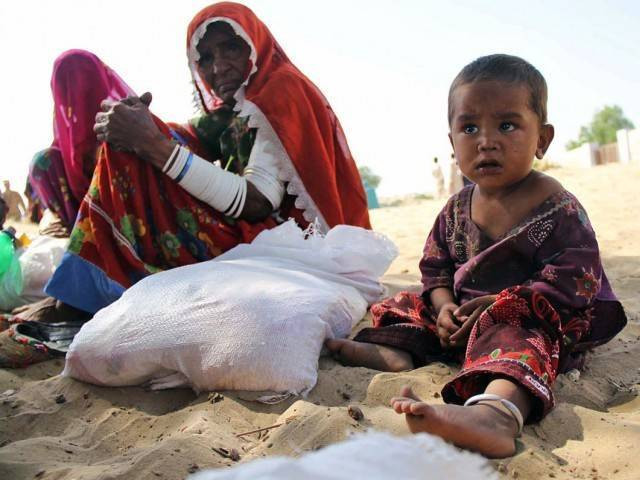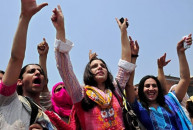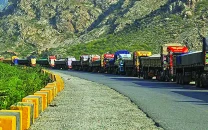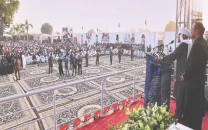13th Regional Consultative Committee: Sharing knowledge, expertise key to SDGs
Iqbal says Pakistan playing role in reducing risk of disasters internationally

Iqbal says Pakistan playing role in reducing risk of disasters internationally.
PHOTO: ONLINE
This was stated by Minister for Planning, Development and Reforms Ahsan Iqbal while addressing the 13th annual meeting of the Regional Consultative Committee (RCC) on disaster management in Islamabad on Monday.
Pakistan is hosting the event for the first time while delegates and representatives from sixteen member countries alongside international observers from non-member states are attending the three-day meeting.
The main theme of the conference is operationalsing global frameworks for risk resilient development in Asia. It would assess how the global and regional frameworks for disaster mitigation can be best translated into practice keeping local needs and perspectives in view.
At the inaugural session Iqbal said that Pakistan helping other countries mitigate risk from disasters.
He observed that Asia was vulnerable to the negative impacts of both geological hazards and climate change. Therefore, he emphasised the need for enhanced partnerships for sustainable developments, sharing of knowledge, expertise and technology for achieving Sustainable Development Goals (SDGs), particularly for developing countries.
While reiterating Pakistan’s commitment to disaster risk reduction, the minister said, “Realising the nature of close linkages between disaster and development efforts, the government of Pakistan under its Vision 2025 has embarked upon developing strategies to reduce vulnerabilities to disasters”.
Sendai Framework
The sub-theme for the first day of the meeting was the Sendai Framework for Disaster Risk Reduction, implementation efforts, challenges and opportunities. Asian Disaster Preparedness Centre (ADPC) Chairman Professor Dr Krasae Chanawongse said that the ADPC’s objective was to support countries in this region to prepare for reduction of risks and implement a global framework in this regard.
Prof Dr Chanawongse and ADPC Special Advisor Dr Bhitchit Rattakul, while talking to The Express Tribune on the sidelines of the event, said that ADPC was being considered as a regional resource centre for disaster management and that they have, after a long time, managed to gather experts and experienced people working in disaster management in the region.
Dr Rattakul, said that the objective of the RCC meeting was a good opportunity for each country to review what had happened a year after adopting the Sendai framework and to deliberate what would the next step should be.
“We are looking for an exchange of experience among member countries and cooperation besides making such cooperation in line with Sendai framework, climate agreement in Paris last year and UN SDGs,” Dr Rattakul said.
He added that over the next two days, they would also look into how to mainstream disaster risk reduction and climate change into the daily lives of people living in the region.
“We [ADPC] only play the role of the facilitator of the knowledge and experience which belongs to those countries,” he said while emphasizing the need for regional partnership and synergies.
At the end of the three-day moot, a joint declaration will be issued which will be used in the Asian Ministerial Conference on Disaster Risk Reduction scheduled to be held in New Delhi in the next couple
of months.
Published in The Express Tribune, October 18th, 2016.



















COMMENTS
Comments are moderated and generally will be posted if they are on-topic and not abusive.
For more information, please see our Comments FAQ